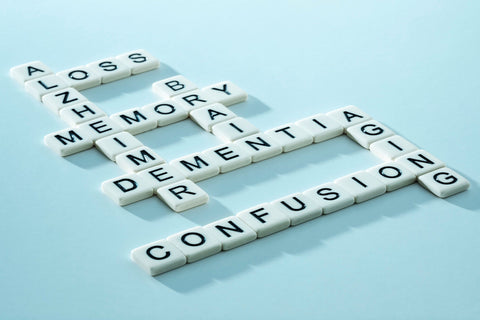
September is World Alzheimer’s Month and the 21 September is World Alzheimer’s day. This year the theme for World Alzheimer’s Month is ‘Let’s Talk About Dementia.’
What Is World Alzheimer’s Day?
Created on the 21 September 1994 to mark the ten year anniversary of Alzheimer’s Disease International, World Alzheimer’s Day is marked to raise awareness, educate and reduce the stigma attached to dementia.
In 2012, World Alzheimer’s Month was created, giving organisations and people a longer period to coordinate activity globally.
Alzheimer’s Facts
Dementia is the term used to describe degenerative brain disorders that trigger a loss of brain function. These conditions are all usually progressive and terminal.
Dementia symptoms include memory loss, confusion, speech problems and general understanding.
Currently (2020) there are around 850,000 people in the UK living with dementia, and this figure is predicted to rise to 1.6 million by the year 2040.
Although those that live with dementia are, on the whole over the age of 65, there are more than 42,000 people living with dementia who are under 65 years of age in the UK.
Globally there’s an estimated 54 million people living with dementia and this is expected to increase to 130 million by 2050.
Is There A Cure for Alzheimer’s?
Unfortunately, there is no cure for Alzheimer’s or any other form of dementia and research into treatments is terribly underfunded.
As reported by Alzheimers.org.uk “the annual cost to the UK economy for every individual living with dementia is over £30,000 and yet only £90 is spent on dementia research every year.”
What Can We Do to Help World Alzheimer’s Day?
As we mentioned earlier, this year’s theme is ‘Let’s Talk About Dementia’ and World Alzheimer’s Month.org have a huge resource of over 200 campaign materials that can be downloaded for World Alzheimer’s Day.
For 2020 the key messages they are focusing on include:
COVID-19 And Dementia
The Coronavirus pandemic has highlighted the fact that the NHS and other medical and care organisations don’t have the infrastructure or funding to deal with a national or global emergency and continue to offer good levels of support to other patients.
Although the headlines are mainly around operations being cancelled, there are other tiers of support that people, including those living with dementia, rely on.
Whether it is being able to contact their local GP or nurse or the ramifications of people being isolated during any lockdown situation.
The Stigma of Dementia
Although most people have heard of dementia and Alzheimer’s, there is a general lack of knowledge surrounding symptoms, how to live with dementia and how to help those living with the condition.
Talking about dementia, it being discussed in the media and campaigns such as World Alzheimer’s Month and Day helps to raise the amount of accurate information available for everyone.
Statistics
Sometimes a simple shocking number is a way of bringing home the severity of a situation.
For example, every 3 seconds, someone in the world develops dementia.
Or that, in the next 30 years, the number of those living with dementia is predicted to triple to 152 million worldwide.
Sharing information like this could help make a difference. Especially if, like in 2019, 94 countries all took part in World Alzheimer’s Month.
In the past two years, the campaign was also highlighted on Sky News, and on the BBC World Service.
Incidentally, the link above to the BBC World Service is to an excellent radio programme talking about the fear and stigma of Alzheimer’s. If you have a spare half hour, we would highly recommend a listen as it gives an excellent insight into the condition.
Dementia and Alzheimer’s Advocacy
The World Health Organisation (WHO) has recognised just how huge the dementia epidemic is and how it could grow, and they have launched the Global action plan on the public health response to dementia 2017 - 2025.
So, using World Alzheimer’s Month to try and get governments across the world to commit to funding is the third of this year’s key messages that the campaign leaders are focusing on.

World Alzheimer’s Day – How Can We Help?
The first and most obvious way people can contribute is by donating. If you look at the website of the Alzheimer’s Society, you can find ways to donate and details of any local events or organisations you can support.
In previous years, there would have been various events that you could participate in. Obviously, this year things are a bit different.
There are still some events being held, in some cases online, have a look here to see what is being in held in Europe for example.
Sharing information is something that we can all do, and it is completely free!
As we mentioned earlier, World Alzheimer’s Month.org have a wealth of posters, infographics and other helpful information, that can be printed or shared on social media.
Summary
We hope that we have given you some information and ideas for World Alzheimer’s Day. For some further reading on help with dementia, we have put together a Guide To Dementia, including advice and links to organisations that can help.
We also have a range of specialist dementia care items here and if you would like anymore information on anything we have mentioned today then please do contact us.